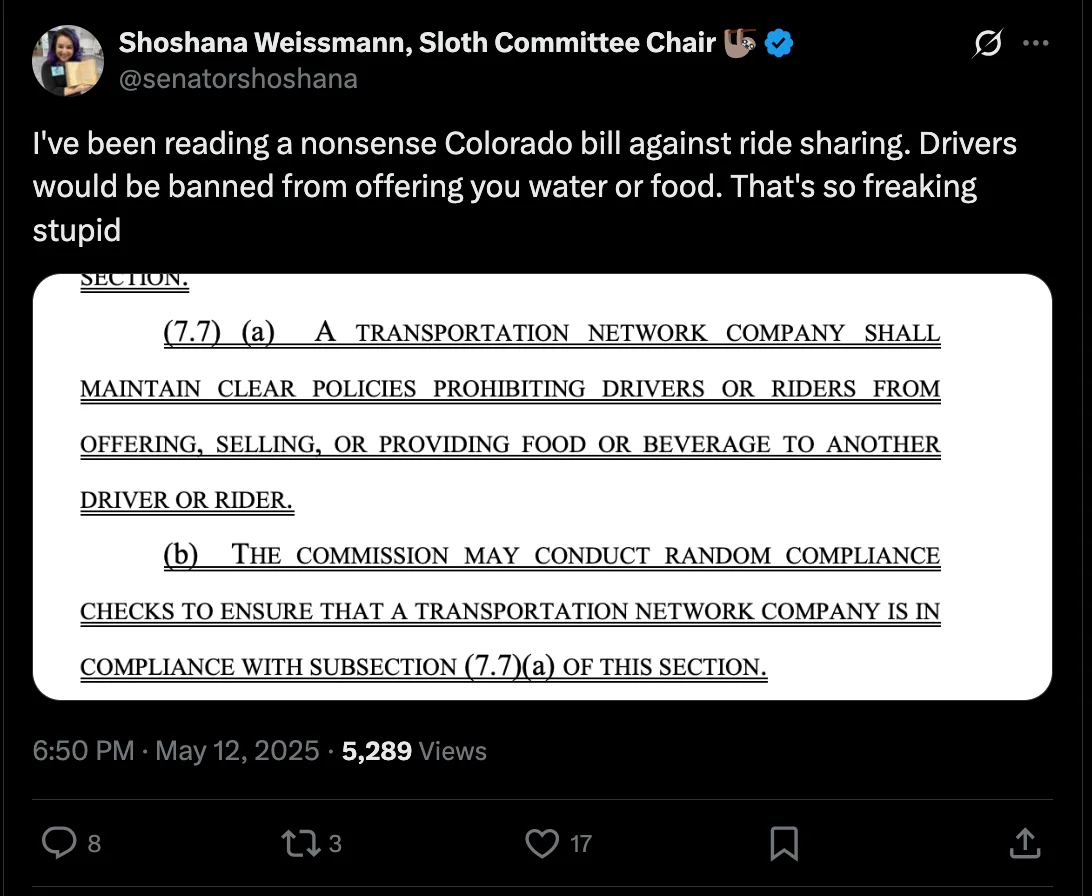Shoshana Weissmann, digital director at the R Street Institute, said Colorado’s proposed ridesharing bill is overly broad and would prohibit drivers from offering riders basic courtesies such as water or snacks.
"I've been reading a nonsense Colorado bill against ride sharing," said Weissmann. "Drivers would be banned from offering you water or food. That's so freaking stupid."
According to an analysis by the R Street Institute, Colorado’s HB1291, although presented as a public safety measure, imposes excessive regulations that could negatively impact the state's economy, consumer choice, and civil liberties. The bill includes requirements for fingerprint-based background checks and audio/video recording of rides. These mandates are seen as unnecessary and potentially invasive to privacy. The analysis suggests that such measures could reduce driver availability, increase costs for riders, and disproportionately affect low-income and minority workers. Similar policies have previously led to rideshare companies withdrawing from cities like Austin, Texas.

Weissmann's May 12 statement
| X.com
The debate over Colorado’s HB 1291 has intensified with Uber threatening to exit the state if the bill becomes law. Initially inspired by a lawmaker's personal experience of assault, the bill has been revised significantly. It no longer includes controversial provisions like mandatory ride recording but still requires semiannual background checks and quick driver deactivation following complaints. Uber and Lyft have opposed the bill due to high compliance costs and potential legal issues.
The American Tort Reform Association (ATRA) has criticized Colorado in its Legislative HeatCheck report for becoming a "Lawsuit Inferno," citing an increase in liability-expanding legislation passed by the Democratic-controlled legislature. Despite some vetoes from Governor Jared Polis on controversial bills, many measures creating new private rights of action have advanced. ATRA warns these changes could lead to excessive litigation and economic strain.
A report from the U.S. Chamber’s Institute for Legal Reform highlights rising lawsuit costs in the U.S., reaching $529 billion in 2022—equivalent to 2.1% of national GDP. The report indicates that tort costs in Colorado total over $9.4 billion or 1.9% of the state’s GDP.
Weissmann is also known for her work on digital strategy at the R Street Institute and her involvement in various policy issues including occupational licensing reform and social media regulation.


